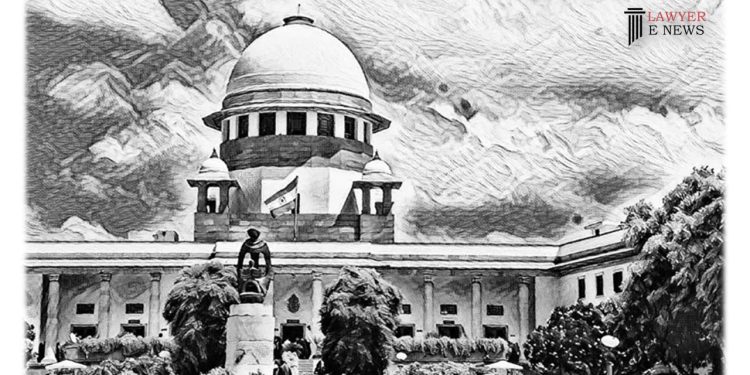-
by Admin
15 February 2026 5:35 AM



In a significant ruling, the Supreme Court restored the disciplinary action against a government servant, Dilip Paul, accused of sexual harassment. The apex court set aside the earlier judgment of the High Court, thereby reinforcing the principles governing disciplinary proceedings in cases of workplace harassment.
Chief Justice Dr. Dhananjaya Y. Chandrachud, Justice J.B. Pardiwala, and Justice Manoj Misra upheld the findings of the Central Complaints Committee, which found the respondent guilty of the charges. The respondent, an Area Organizer at the Service Selection Board in Rangia, Assam, was accused of sexual harassment by a female colleague.
The Court's decision emphasized the importance of thorough and fair investigations in such sensitive matters. Justice Chandrachud observed, "Where there is some evidence, which the authority entrusted with the duty to hold the enquiry has accepted and which evidence may reasonably support the conclusion that the delinquent officer is guilty of the charge, it is not the function of the High Court in a petition for a writ under Article 226 to review the evidence and to arrive at an independent finding on the evidence."
This judgment highlights the applicability and interpretation of the Vishaka guidelines in government service. The Court scrutinized the procedural aspects of the inquiries conducted by both the Frontier and Central Complaints Committees. It was noted that initial inquiries had failed to fully substantiate the allegations against the respondent. However, the subsequent inquiry by the Central Complaints Committee established the charges, leading to the appropriate disciplinary action.
The Supreme Court also addressed the issue of conducting multiple inquiries. It was noted that the initial on-spot inquiry was only preliminary in nature and could not be equated with a comprehensive disciplinary inquiry. The formation of the Central Complaints Committee was thus justified for a more thorough investigation, adhering to the principles laid down in the Vishaka guidelines.
The ruling serves as a reaffirmation of the judicial system's commitment to ensuring a harassment-free workplace while upholding the principles of justice and fair play in disciplinary proceedings. This decision sets a precedent for how allegations of sexual harassment, especially in government sectors, should be meticulously and sensitively handled, respecting the rights of all parties involved.
Date of Decision: 06 November 2023
Union of India and Others VS Dilip Paul
